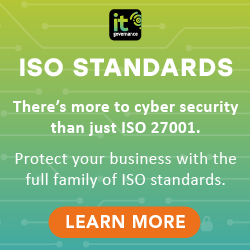1. Don’t use the ‘standardized’ resume format produced by many of the more popular online job sites (e.g. Job Top Gun). Your resume is personal and should reflect as much as possible as to who you are. By all means use the online system format in order to take advantage of the website’s job matching capabilities but make sure you attach a copy of your personalize resume to the system.
2. Don’t make your resume too long. There is absolutely no reason for anyone’s resume, irrespective of how many years of experience they may have, to cover more than three sides of A4 paper. Remember your resume is a bid to get you noticed and hopefully invited in for a face-to-face interview – reading a resume the length of a novel will not endear you to a prospective employer.
3. Do list your work experience in reverse chronological order. In other words your most recent job should come first in your resume. Put simply, a potential employer does not want to have to read to the bottom of a document to find out what you are doing now.
4. Don’t include irrelevant information. Irrelevant information will often prevent the reader from seeing your ‘selling points’. Only include elements of your experience that you feel the hiring company will be looking for in the particular job vacancy. Additionally, don’t include information about your hobbies unless relevant to the role you are applying for or are an important part of your social life. For example, knowing your blood type or that you like watching movies is highly unlikely to be a reason why someone would want to interview you.
5. Do use ‘spell-check’ before you send out your application. Misspellings, at best, communicate poor writing skills or poor attitude, at worst, they can cause big misunderstandings. For example the executive who claimed he was “instrumental in ruining the entire operation”. Proofread your resume and cover letter carefully and have friends or family read it as well.
6. Do provide evidence of your experience. Whilst I have highlighted brevity above, it is not sufficient to just provide a list of the companies you have worked for. You do need to provide specific examples of how you achieved success. Resume-writing professionals recommend using the PARS formula: Describe a Problem, the Action you took, the Results you achieved and Skills you applied.
7. Don’t overlook the importance of presentation. Poor formatting, alignment, spacing the use of bold and caps, can make a resume difficult to read. Though there are a number of resume layouts that are effective, I recommend the following structure:
– Header (your name, address, e-mail address and phone number)- Career summary, profiling the scope of your experience and skills- Reverse chronological employment history emphasizing achievements- Education (usually only University level qualifications).
8. Don’t send your resume in Landscape format!
9. Do include a Career summary/Introductory statement. Most hiring managers or recruiters don’t have time to match unspecified resumes to open positions, it is therefore important to lead off with a career summary or introductory statement that makes it clear what type of position you are seeking and why you are qualified for the role.
10. Don’t use personal pronouns and articles. With just two or three pages to sell yourself, make each word count. Write in a telegraphic style, eliminating all personal pronouns and articles like “the,” “a” and “an.” Removing the “I,” “me” and “my” from your resume not only frees up space, but creates a subliminal perception of objectivity.
11. Do think about the ‘keyword’ content of your resume. A factor regularly overlooked especially in Thailand. More and more companies and recruiters are now using applicant tracking software, your resume needs to contain the keywords and phrases the software is screening for. These words are not the verbs stressed in paper resumes, but nouns such as job titles and technical skills.
Perhaps the most important factor to remember is that the purpose of your resume is to communicate your experiences and accomplishments as they relate to an open position and to get yourself invited for the job interview. As each job vacancy is different, you should tailor your resume and cover letter to each opportunity.


